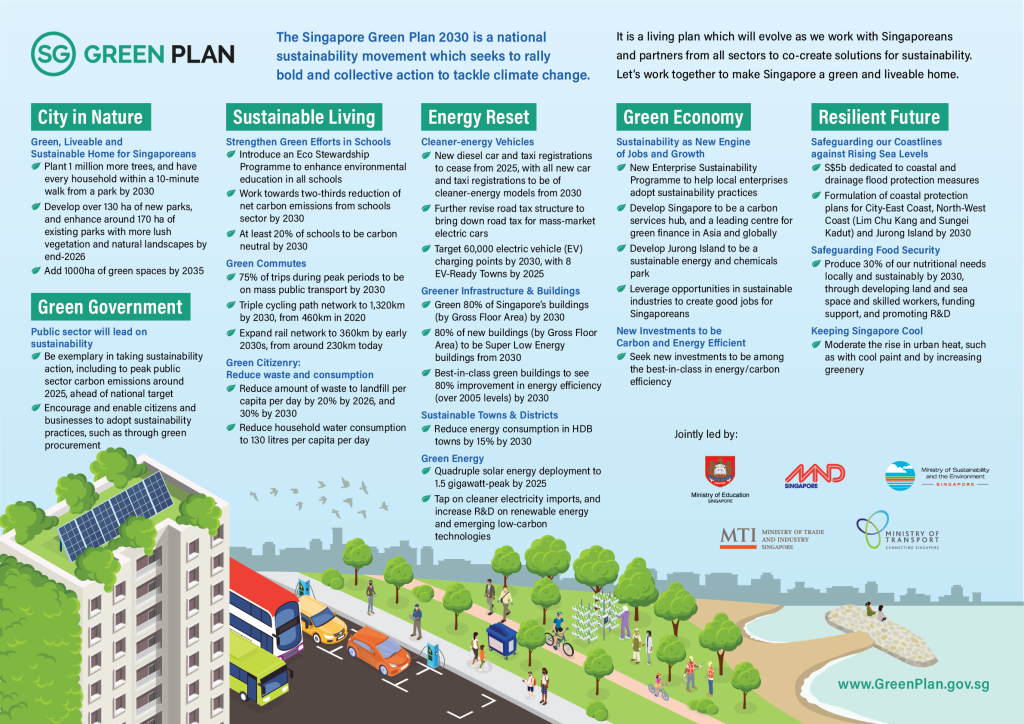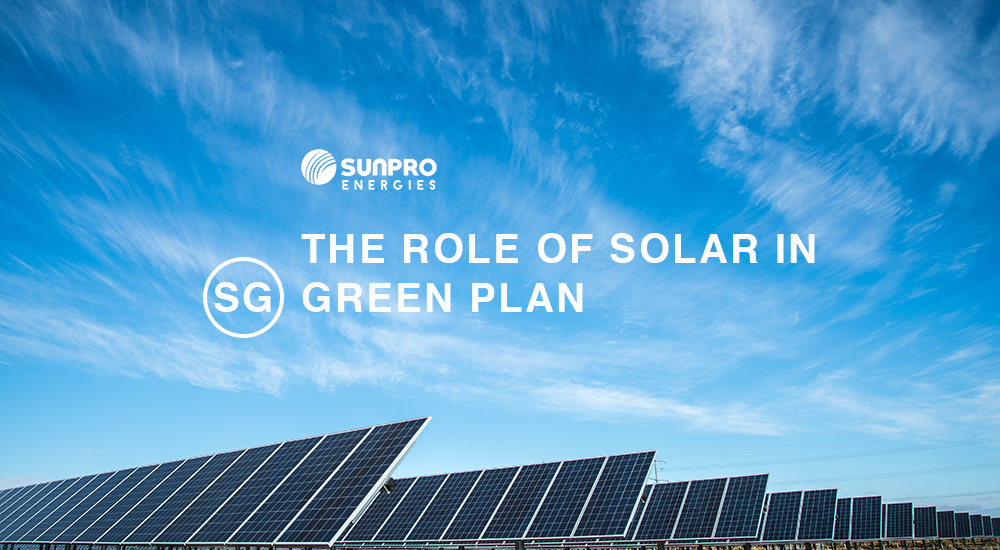Last month, the Singapore Green Plan 2030 was announced — ushering in a slew of policies and praises for the ambitious targets. Notably, climate change experts have chimed in their support, adding some recommendations but otherwise, pleased with the short-term and long-term goals laid out.
What role does Singapore play in the making of a more liveable and livelier future? In this opinion piece, we highlight two main roles solar plays to advance the sustainability agenda in this little red dot.
An Imperative Role
Singapore has plans to quadruple solar energy deployment by 2025, as of this time of writing. The nation has taken concrete steps in its execution of such goals. It was first announced in 2015 to deploy 350MWp of solar energy by 2020, and then a subsequent 5.7 times by 2030. The first target has been achieved. In 2020, the Minister for Sustainability and the Environment frontloaded the next target when announcing a 1.5GWp by 2025.
The Housing Development Board (HDB) has since moved ahead with several phases of the Solar Nova initiative, aiming to deploy solar panels to the roof spaces at public housing blocks. HDB is working towards its target of 540 MWp by 2030, a plan first announced in 2019. The power harvested from these panels will be used to meet a portion of electricity demand.
Another ambition is to raise sustainability standards of our buildings through a revised edition of the Singapore Green Building Masterplan. Singapore’s ambition is to have 80 per cent of its buildings certified as sustainable under its Green Mark Scheme by 2030. Green buildings have been mandatory since 2008, a step that involved huge foresight from more than a decade ago. One example of the sustainable, energy-efficient upgrades is the Productivity Innovation Project (PIP). This incentive scheme provides subsidies to encourage contractors to use technology to improve the building’s efficiency. The Ministry of Trade and Industry will also provide more details on the Enterprise Sustainability Programme that allows firms to grow in the green economy.
By going strong on its solar deployment, the government is making a clear stand and fight against climate change. Her goal to achieve net-zero emissions is necessary in light of the unprecedented consequences brought about by climate inaction.
Source: Ministry of Sustainability and the Environment
An Inspirational Role
Earlier this year, the first Singapore import electricity trial has begun. This two-year import from Malaysia will provide 100 MW of electricity and constitute 1.5 per cent of Singapore’s peak electricity demand, as well as form the testbed for future regional imports. Singapore has announced plans to set up interconnections to Laos via Thailand and Malaysia from 2022 to 2025 as well.
The government has plans to solidify Singapore as a leading center for green finance in Asia and globally. To achieve this, the Monetary Authority of Singapore has been driving green finance plans for a sustainable economy in the region. Green bonds, in particular, is one way of attracting investors and kickstarting green projects. For example, the Tuas Nexus is funded by the green bonds and will pave the way for greener initiatives.
Apart from finance, Singapore will also take the lead in technological advancement. Funding will be poured into research in emerging technologies that can ultimately be employed and scaled.
Other initiatives also include an appropriate carbon tax, as well as ground-up feedback sessions to aid the government in implementing the soundest policies. Its recent SG Eco Fund grant call garnered over 200 applicants, and Singapore is set to work together with the public for future initiatives.
By championing sustainability, Singapore is paving the way for other countries to cut their carbon emissions as quickly and smartly as possible. Singapore has proven to be way ahead in terms of sustainable practices and mindset shifts. Solar has emerged as a core way that our nation will partake in to move forward with its agenda.

Source: Ministry of Sustainability and the Environment
Paving the Green Way
Solar aside, there are numerous ambitious goals set out in the Green Plan 2030 that taps on extremely necessary sectors. And it is because the Green Plan 2030 is a multi-ministerial, hand-in-hand, collective effort that SunPro Energies is excited to see how we can all move forward with one another.
Climate change is one of the ‘gravest challenges facing mankind,’ says PM Lee in the National Day Rally 2019. In tackling this existential crisis of the generation, there is indeed so much more than just solar deployment. We believe that these goals can and will be met, so long as we resolve to co-create a more sustainable and liveable future for tomorrow’s generation.
Solar will emerge as a fundamental aspect — alongside many other aspects. It is a glorious time to live in today. Looking forward to how our nation will move forward and achieve these milestones together! We are soon approaching a decade of increased solar deployment locally. We must also bear in mind, that we are battling decades of climate change ahead. Together, we can create a more sustainable and liveable future.
Here at SunPro Energies, we are committed to providing solar solutions for your residential, commercial and industrial needs. Contact us to enquire more and arrange for a free site visit.



